第40章 THE SIXTH - EXEGETICAL(9)
Matthew's I wrote against your name 'enthusiastic, but a saving delicacy.' After all our life-long friendship I would not write anything truer.I would say of you to-day, 'This man might have been a revivalist, if he were not a gentleman.' There is the enthusiast, there is the revivalist, in you.It seems to me that the stresses and questions of this great crisis in the world's history have brought it nearer to the surface than I had ever expected it to come.
1
quite understand your theological difficulties--quite.The creeds, if their entire symbolism is for a moment forgotten, if they are taken as opaque statements of fact, are inconsistent, incredible.So incredible that no one believes them; not even the most devout.The utmost they do is to avert their minds--reverentially.Credo quia impossibile.That is offensive to a Western mind.I can quite understand the disposition to cry out at such things, 'This is not the Church of God!'--to run out from it--"You have some dream, I suspect, of a dramatic dissidence.
"Now, my dear Brother and erstwhile pupil, I ask you not to do this thing.Wait, I implore you.Give me--and some others, a little time.I have your promise for three months, but even after that, I ask you to wait.Let the reform come from within the church.The church is something more than either its creeds, its clergy, or its laymen.Look at your cathedral rising out of and dominating Princhester.It stands not simply for Athanasius; it stands but incidentally for Athanasius; it stands for all religion.Within that fabric--let me be as frank here as in our private conversation--doctrine has altered again and again.
To-day two distinct religions worship there side by side; one that fades and one that grows brighter.There is the old quasi-materialistic belief of the barbarians, the belief in such things, for example, as that Christ the physical Son of God descended into hell and stayed there, seeing the sights I suppose like any tourist and being treated with diplomatic civilities for three terrestrial days; and on the other hand there is the truly spiritual belief that you and I share, which is absolutely intolerant of such grotesque ideas.My argument to you is that the new faith, the clearer vision, gains ground; that the only thing that can prevent or delay the church from being altogether possessed by what you call and I admit is, the true God, is that such men as yourself, as the light breaks upon you, should be hasty and leave the church.You see my point of view, do you not?
It is not one that has been assumed for our discussion; it is one I came to long years ago, that I was already feeling my way to in my St.Matthew's Lenton sermons.
"A word for your private ear.I am working.I cannot tell you fully because I am not working alone.But there are movements afoot in which I hope very shortly to be able to ask you to share.That much at least I may say at this stage.Obscure but very powerful influences are at work for the liberalizing of the church, for release from many narrow limitations, for the establishment of a modus vivendi with the nonconformist and dissentient bodies in Britain and America, and with the churches of the East.But of that no more now.
"And in conclusion, my dear Scrope, let me insist again upon the eternal persistence of the essential Religious Fact:
(Greek Letters Here)
(Rev.i.18."Fear not.I am the First and Last thing, the Living thing.")And these promises which, even if we are not to take them as promises in the exact sense in which, let us say, the payment of five sovereigns is promised by a five-pound note, are yet assertions of practically inevitable veracity:
(Greek Letters Here)
(Phil.i.6."He who began...will perfect."Eph.v.14."He will illuminate.")
The old man had written his Greek tags in shakily resolute capitals.It was his custom always to quote the Greek Testament in his letters, never the English version.It is a practice not uncommon with the more scholarly of our bishops.It is as if some eminent scientific man were to insist upon writing H20 instead of "water," and "sodium chloride" instead of "table salt" in his private correspondence.Or upon hanging up a stuffed crocodile in his hall to give the place tone.The Bishop of Princhester construed these brief dicta without serious exertion, he found them very congenial texts, but there were insuperable difficulties in the problem why Likeman should suppose they had the slightest weight upon his side of their discussion.The more he thought the less they seemed to be on Likeman's side, until at last they began to take on a complexion entirely opposed to the old man's insidious arguments, until indeed they began to bear the extraordinary interpretation of a special message, unwittingly delivered.
(8)
The bishop was still thinking over this communication when he was interrupted by Lady Ella.She came with a letter in her hand to ask him whether she might send five-and-twenty pounds to a poor cousin of his, a teacher in a girls' school, who had been incapacitated from work by a dislocation of the cartilage of her knee.If she could go to that unorthodox but successful practitioner, Mr.Barker, the bone-setter, she was convinced she could be restored to efficiency.But she had no ready money.The bishop agreed without hesitation.His only doubt was the certainty of the cure, but upon that point Lady Ella was convinced; there had been a great experience in the Walshingham family.
"It is pleasant to be able to do things like this," said Lady Ella, standing over him when this matter was settled.
"Yes," the bishop agreed; "it is pleasant to be in a position to do things like this...."